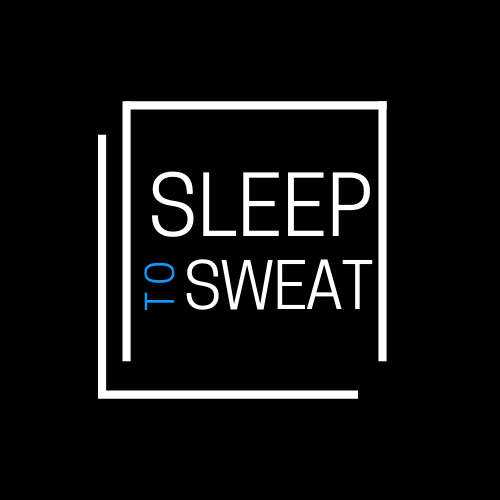Revitalize your body and mind.
dedicated to helping readers achieve their fitness and wellness goals through the power of sleep.


Committed to expertise
Real sleep tips for real people.
At Sleep to Sweat, we understand that fitness and wellness are not just about working out and eating well. They are also about giving your body the time and space it needs to recover and recharge. That's why we focus on the importance of sleep and how it can help our readers achieve their desired results.
Your sleep is our forte.
We believe that quality sleep is the foundation of a healthy and active lifestyle
Healthy sleep, healthy life.

Healthy Eating Habits: Tips for Developing a Balanced Diet and Better Sleep
Healthy eating and quality sleep are more interconnected than you might think. What you eat during the day directly impacts your ability to relax, fall asleep, and enjoy restorative sleep at night. By developing a balanced diet and adopting mindful eating habits, you can enhance your energy levels, support overall health, and improve your sleep quality. Here’s how to align your diet with your sleep goals.
1. Prioritize Nutrient-Rich Foods
A well-balanced diet provides your body with the essential nutrients needed to function optimally during the day and prepare for rest at night.
Complex Carbohydrates: Whole grains, oats, and quinoa promote serotonin production, a neurotransmitter that aids sleep.
Lean Proteins: Foods like chicken, fish, eggs, and legumes contain tryptophan, an amino acid that supports melatonin production.
Healthy Fats: Avocado, nuts, seeds, and olive oil support brain health and hormone regulation.
Tip: Aim for variety in your meals to ensure you’re getting a full range of nutrients.
2. Watch Your Caffeine and Sugar Intake
What you consume in the afternoon and evening can significantly impact your ability to fall asleep.
Limit caffeine after 2 p.m., as it can stay in your system for up to 6 hours.
Avoid sugary snacks close to bedtime, as they can cause energy spikes followed by crashes, disrupting sleep patterns.
Better Choice: Opt for herbal teas like chamomile or peppermint in the evening for a calming effect.
3. Incorporate Sleep-Friendly Foods
Certain foods contain compounds that promote relaxation and improve sleep quality.
Bananas: High in magnesium and potassium, which relax muscles.
Almonds: Contain melatonin and magnesium, both linked to better sleep.
Kiwi: Packed with antioxidants and serotonin-boosting properties.
Oatmeal: A natural source of melatonin, perfect for a light evening snack.
Pro Tip: Enjoy a small portion of these foods 1–2 hours before bed for the best results.
4. Stay Hydrated, But Not Too Late
Dehydration can lead to poor energy levels during the day and restless nights.
Drink water consistently throughout the day to stay hydrated.
Avoid drinking large amounts of fluids right before bed to prevent frequent bathroom trips.
Tip: Add a glass of water with meals to maintain a steady hydration level.
5. Avoid Heavy Meals Before Bed
Eating a large or heavy meal too close to bedtime can disrupt your sleep.
Late-night meals can lead to indigestion and discomfort, making it harder to relax.
Instead, aim to finish your dinner 2–3 hours before bedtime.
Light Snack Idea: A small bowl of yogurt with honey or a slice of whole-grain toast with almond butter.
6. Practice Mindful Eating
Mindful eating enhances your relationship with food and improves digestion, which can positively affect sleep.
Eat slowly, savoring each bite, and avoid distractions like TV or phones during meals.
Pay attention to hunger and fullness cues to avoid overeating.
Bonus: Mindful eating reduces stress, which can help you wind down more effectively at night.
7. Balance Your Blood Sugar
Maintaining stable blood sugar levels throughout the day prevents energy crashes and late-night hunger pangs.
Pair carbs with protein or healthy fats to keep blood sugar steady.
Snack on foods like apple slices with peanut butter, trail mix, or a boiled egg to avoid energy dips.
Pro Tip: A balanced diet also reduces the risk of waking up hungry during the night.
8. Limit Alcohol Consumption
While alcohol may make you feel drowsy initially, it disrupts deep sleep stages and can cause fragmented sleep.
Stick to moderate alcohol consumption, and avoid drinking right before bed.
If you choose to drink, pair it with water to minimize dehydration.
9. Plan and Prep Your Meals
Meal planning ensures you have access to nutritious options, even on busy days.
Prepare healthy snacks and meals in advance to reduce the temptation of fast food or sugary treats.
Keep your pantry stocked with wholesome staples like nuts, whole grains, and frozen fruits.
Tip: A little planning can go a long way in promoting better eating and sleeping habits.
10. Establish a Consistent Eating Routine
Eating at consistent times each day helps regulate your body’s internal clock.
Aim to eat breakfast, lunch, and dinner at similar times daily.
Avoid skipping meals, as irregular eating patterns can affect your metabolism and sleep-wake cycle.
Pro Tip: A regular eating schedule aligns with your circadian rhythm, making it easier to fall asleep and wake up refreshed.
How a Balanced Diet Improves Sleep
Healthy eating habits directly influence the hormones and neurotransmitters that regulate sleep:
Melatonin Production: Tryptophan and magnesium-rich foods encourage the production of melatonin, the hormone that governs your sleep-wake cycle.
Reduced Stress: Nutrient-dense foods support brain health, reducing stress and anxiety, which are common sleep disruptors.
Stable Energy: Balanced blood sugar levels ensure you feel energized during the day and ready to relax at night.
Your diet is a powerful tool for enhancing your overall well-being, including the quality of your sleep. By prioritizing nutrient-rich foods, staying hydrated, and eating mindfully, you can create a routine that supports better energy during the day and restful sleep at night. Start small, incorporate one or two tips at a time, and watch your health and sleep improve in tandem.
Remember: Consistency is key—your body thrives on regularity, both in eating and sleeping. Make these habits a part of your daily routine, and you’ll enjoy the benefits of a healthier, more energized, and well-rested life.
One or more of the links above are affiliate links, meaning, at no additional cost to you, we will earn a slight commission if you click through and make a purchase. Each of these products is chosen by a trusted member of our team.



